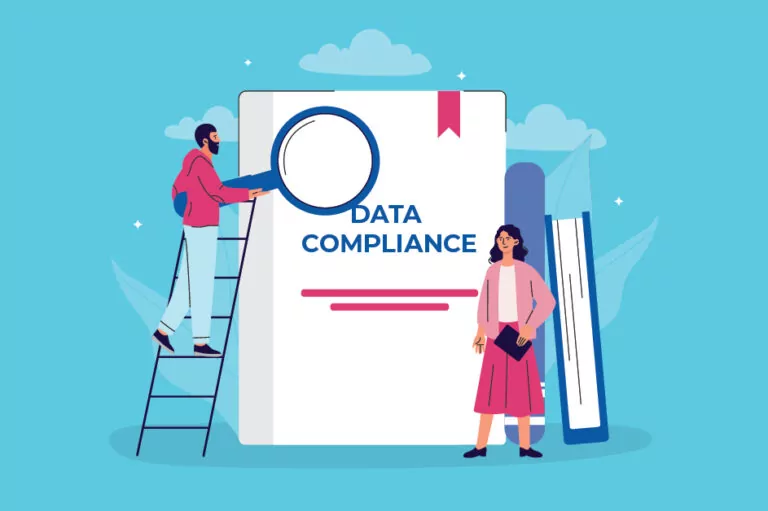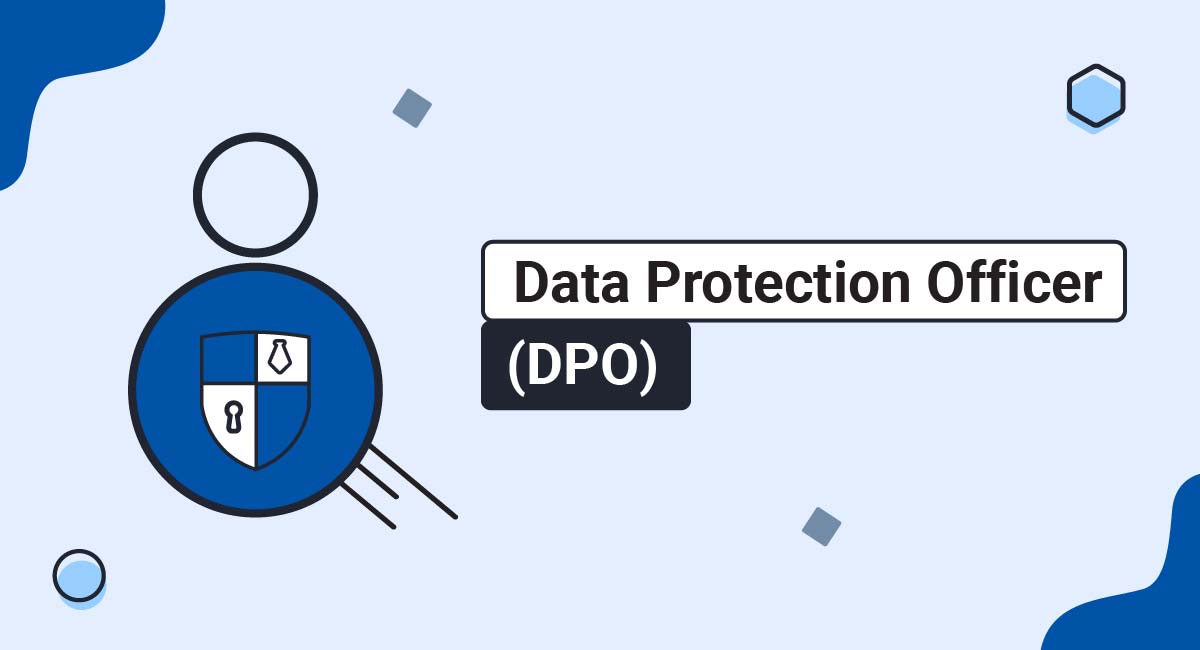
The Advanced Guide to PDPA Compliance in Singapore
June 3, 2024






Brief Overview of PDPA (Personal Data Protection Act) in Singapore
In today's hyper-connected world, data is the new currency. Every interaction, transaction, and communication generates data, much of which is personal and sensitive. Recognizing the need to protect this data, the Singaporean government introduced the Personal Data Protection Act (PDPA) in 2012. The PDPA provides a comprehensive framework to govern the collection, use, disclosure, and care of personal data. This legislation aims to strengthen consumer trust while promoting the growth of Singapore’s digital economy.
The PDPA applies to all private sector organizations, including those with a presence in Singapore but based abroad. This means that multinational corporations, small and medium enterprises (SMEs), and even non-profits are required to comply. The scope of the PDPA covers various aspects of data protection, including obtaining consent for data collection, ensuring the accuracy of data, protecting data from unauthorized access, and providing individuals with the right to access and correct their data.
A key feature of the PDPA is the establishment of the Personal Data Protection Commission (PDPC), the regulatory body responsible for enforcing the Act. The PDPC has the authority to issue advisory guidelines, conduct investigations, and impose fines for non-compliance. Over the years, the PDPC has actively updated its guidelines to address emerging issues and technological advancements, ensuring that the PDPA remains relevant in a rapidly evolving digital landscape.
The importance of PDPA compliance cannot be overstated. As data breaches and cyber threats become more sophisticated, protecting personal data is not just a legal requirement but a crucial component of good business practice. Businesses that comply with the PDPA can build stronger relationships with their customers, gain a competitive edge, and avoid the severe penalties associated with non-compliance. In this blog post, we will explore the risks of non-compliance, the benefits of adhering to the PDPA, and practical solutions for ensuring compliance.
Importance of PDPA Compliance for Businesses
For businesses operating in Singapore, PDPA compliance is a non-negotiable aspect of their operations. The consequences of failing to comply with the PDPA are multifaceted and far-reaching, affecting financial stability, legal standing, and corporate reputation. On the positive side, compliance can significantly enhance customer trust, operational efficiency, and competitive positioning.
Firstly, PDPA compliance is essential to avoid hefty financial penalties. The PDPC has the authority to impose fines of up to S$1 million for severe violations, which can cripple a business’s finances. Beyond fines, businesses may face lawsuits and legal fees if individuals whose data has been mishandled decide to seek compensation. Legal battles can be long, costly, and damaging to a company’s operations and public image.
Secondly, non-compliance can severely damage a company's reputation. In an era where news spreads quickly through social media and other channels, a data breach or privacy violation can result in negative publicity that tarnishes a brand’s image. This reputational damage can lead to a loss of customer trust, which is often harder to rebuild than it is to establish in the first place. Customers are becoming increasingly aware of their privacy rights and are more likely to engage with businesses that demonstrate a commitment to protecting their personal data.
On the other hand, compliance with the PDPA can provide a competitive advantage. Businesses that prioritize data protection can differentiate themselves from competitors who may not be as vigilant. This is particularly important as consumers become more privacy-conscious and prefer to do business with organizations that respect their personal data. By showcasing robust data protection practices, businesses can attract and retain customers, thereby enhancing their market position.
Furthermore, PDPA compliance is a key element in ensuring business continuity. Data breaches can disrupt operations, leading to significant downtime and loss of productivity. By implementing strong data protection measures, businesses can mitigate the risk of breaches and ensure that their operations run smoothly even in the face of potential cyber threats.
In conclusion, PDPA compliance is not just a legal obligation but a strategic imperative for businesses in Singapore. By understanding and adhering to the requirements of the PDPA, businesses can protect themselves from financial penalties, legal consequences, and reputational damage while building trust with customers and gaining a competitive edge. The following sections will delve deeper into the specific risks of non-compliance, the benefits of adhering to the PDPA, and practical steps businesses can take to ensure compliance.

Financial Penalties
Fines up to S$1 Million
One of the most immediate and tangible risks of non-compliance with the PDPA is the financial penalty. The Personal Data Protection Commission (PDPC) in Singapore has the authority to impose fines of up to S$1 million for serious breaches of the PDPA. This isn't just a slap on the wrist; it's a substantial financial burden that can have significant repercussions for any business.
The magnitude of these fines reflects the importance the Singaporean government places on data protection. Fines are determined based on the severity of the breach, the extent of the damage caused, and whether the breach was a result of negligence or willful non-compliance. For example, in 2019, Integrated Health Information Systems (IHiS) and SingHealth were fined a total of S$1 million following a major cyberattack that compromised the personal data of 1.5 million individuals. This case underscored the critical need for robust cybersecurity measures and compliance with the PDPA.
Beyond the immediate financial impact, these fines can also lead to long-term financial instability. Businesses may need to divert funds from other critical areas such as marketing, research and development, or employee training to cover the cost of the fines. This can hinder growth and innovation, putting the business at a competitive disadvantage.
Case Studies of Companies Penalized for PDPA Violations
Examining case studies of companies that have faced penalties for PDPA violations can provide valuable insights into the risks of non-compliance. These real-life examples highlight the various ways in which non-compliance can occur and the consequences that follow.
One notable case involved the organization Telechoice International Ltd., which was fined S$28,000 in 2019. The company failed to protect the personal data of its customers, resulting in unauthorized access and disclosure. This incident not only led to financial penalties but also damaged the company’s reputation, illustrating the far-reaching consequences of data protection failures.
Another significant case is that of the financial services firm, Fullerton Fund Management. In 2020, the company was fined S$10,000 for failing to implement adequate security measures to protect personal data on its website. This breach exposed the personal data of 1,200 individuals, demonstrating the importance of securing online platforms and the data they handle.
These case studies serve as a stark reminder that no industry is immune to the risks of PDPA non-compliance. They also highlight the need for businesses to proactively implement comprehensive data protection measures to mitigate these risks. Regular audits, employee training, and robust cybersecurity practices are essential components of a strong data protection strategy.
Reputational Damage
Loss of Customer Trust
In the digital age, trust is a cornerstone of business success. Customers entrust companies with their personal information, expecting that it will be handled with the utmost care. When this trust is breached, the repercussions can be severe and long-lasting. A data breach can shatter customer confidence, leading to a loss of business and negative word-of-mouth that can take years to recover from.
For instance, when a company fails to protect customer data, it sends a message that it cannot be trusted with sensitive information. This perception can be particularly damaging for businesses that rely heavily on customer relationships, such as those in the finance, healthcare, and retail sectors. Once trust is lost, customers may take their business elsewhere, seeking companies that prioritize data protection.
Negative Media Coverage
In today’s media landscape, news travels fast. A single data breach can quickly become headline news, spreading through traditional media channels and social media platforms alike. Negative media coverage can amplify the damage caused by a data breach, reaching a wide audience and further eroding customer trust.
Consider the high-profile data breaches involving major corporations like SingHealth and IHiS. These incidents received extensive media coverage, highlighting the vulnerabilities in their data protection measures and the consequences of those failures. The negative publicity not only affected the companies involved but also raised awareness among the public about the importance of data protection.
Negative media coverage can also attract the attention of regulatory authorities, leading to increased scrutiny and potential legal actions. The combination of reputational damage and regulatory pressure can create a challenging environment for businesses to operate in, making it essential to prioritize PDPA compliance and proactive data protection measures.
Legal Consequences
Lawsuits and Legal Fees
Beyond fines and reputational damage, non-compliance with the PDPA can lead to costly legal battles. Individuals whose data has been mishandled may file lawsuits seeking compensation for damages. These legal disputes can be lengthy and expensive, with legal fees adding up quickly. In addition to the financial burden, legal battles can be a significant distraction from the core operations of a business, impacting productivity and growth.
For example, if a company fails to obtain proper consent for data collection or discloses personal data without authorization, affected individuals can pursue legal action. The costs associated with defending against these lawsuits, including attorney fees, court costs, and potential settlements, can be substantial. Moreover, the public nature of legal disputes can further damage a company’s reputation, as the details of the case become part of the public record.
Potential Criminal Charges for Severe Violations
In extreme cases, severe violations of the PDPA can result in criminal charges. While this is less common, it underscores the seriousness with which data protection is treated in Singapore. Criminal charges can be brought against individuals within an organization who are found to have willfully disregarded data protection laws, resulting in significant harm to individuals.
For instance, if a company is found to have intentionally misused personal data for fraudulent purposes, the individuals responsible could face criminal prosecution. This could result in imprisonment and other criminal penalties, adding a severe personal consequence to the already significant corporate penalties.
In conclusion, the risks of non-compliance with the PDPA are extensive and multifaceted. Financial penalties, reputational damage, and legal consequences can all have a profound impact on a business. By understanding these risks, businesses can take proactive steps to ensure compliance and protect themselves from the severe consequences of data protection failures. The following sections will explore the benefits of PDPA compliance and practical solutions for achieving and maintaining compliance.

Building Customer Trust and Confidence
Demonstrating Commitment to Data Protection
In an era where data breaches are becoming increasingly common, businesses that demonstrate a commitment to data protection can significantly enhance customer trust and confidence. Compliance with the PDPA serves as a clear indicator that a business takes the privacy and security of personal data seriously. This commitment is not just about meeting legal requirements; it’s about building a culture of trust and transparency.
When businesses implement robust data protection measures and adhere to PDPA guidelines, they show customers that they value their privacy. This can include practices such as obtaining explicit consent before collecting personal data, being transparent about how data is used, and providing easy-to-understand privacy policies. By taking these steps, businesses can reassure customers that their personal information is safe and secure.
In addition, businesses that prioritize data protection can differentiate themselves from competitors who may not be as vigilant. As consumers become more aware of their privacy rights, they are more likely to choose companies that demonstrate a strong commitment to data protection. This can be a significant competitive advantage, particularly in industries where trust and reputation are critical.
Enhancing Brand Reputation
A strong commitment to data protection can also enhance a brand’s reputation. Companies that consistently adhere to PDPA requirements and protect customer data can build a positive image as responsible and trustworthy entities. This reputation can lead to increased customer loyalty and advocacy, as satisfied customers are more likely to recommend a business to others.
Moreover, a solid reputation for data protection can attract new customers, particularly those who are privacy-conscious. In a world where data breaches and cyber threats are common, consumers are increasingly looking for businesses that they can trust with their personal information. By showcasing their commitment to data protection, businesses can appeal to this growing segment of the market.
Building and maintaining a strong reputation for data protection requires ongoing effort and vigilance. Regularly reviewing and updating data protection practices, conducting audits, and staying informed about changes in PDPA regulations are essential steps in maintaining compliance and protecting customer data. By doing so, businesses can build a reputation for excellence in data protection and stand out in a competitive market.

Competitive Advantage
Differentiating from Non-Compliant Competitors
In a competitive business environment, compliance with the PDPA can provide a significant advantage. Companies that prioritize data protection and demonstrate compliance can differentiate themselves from competitors who may not be as diligent. This differentiation can be particularly important in industries where customer trust and reputation are critical.
For example, in the financial services industry, where customers entrust companies with sensitive financial information, demonstrating compliance with the PDPA can be a key differentiator. Customers are more likely to choose a financial institution that has strong data protection measures in place over one that does not. Similarly, in the healthcare industry, where patient data is highly sensitive, compliance with the PDPA can build trust and confidence among patients.
By differentiating themselves through compliance, businesses can attract and retain customers who value privacy and data protection. This can lead to increased customer loyalty, higher retention rates, and ultimately, greater market share.
Attracting Privacy-Conscious Customers
As awareness of data privacy issues grows, more consumers are becoming privacy-conscious. These consumers are more selective about the businesses they engage with and are more likely to choose companies that prioritize data protection. Compliance with the PDPA can help businesses attract these privacy-conscious customers by demonstrating a commitment to protecting their personal information.
Privacy-conscious customers are often willing to pay a premium for services from companies that they trust to protect their data. By showcasing their commitment to data protection, businesses can tap into this growing market and drive revenue growth. Additionally, these customers are more likely to become loyal advocates for the business, recommending it to others and contributing to positive word-of-mouth marketing.
In conclusion, the benefits of PDPA compliance are substantial and multifaceted. Building customer trust and confidence, enhancing brand reputation, gaining a competitive advantage, and attracting privacy-conscious customers are just a few of the advantages that businesses can achieve by prioritizing data protection. The following section will explore practical solutions for achieving and maintaining PDPA compliance, ensuring that businesses can reap these benefits while avoiding the risks of non-compliance.

Conducting a Data Inventory and Risk Assessment
Identifying Types of Personal Data Collected and Processed
The first step towards achieving PDPA compliance is conducting a comprehensive data inventory. This involves identifying all types of personal data that your business collects, processes, and stores. Personal data can include anything from names, addresses, and phone numbers to more sensitive information like financial records, medical histories, and online behavior.
A thorough data inventory helps businesses understand the scope of their data collection activities and the types of personal data they are responsible for protecting. It also allows businesses to identify potential areas of vulnerability and prioritize data protection efforts accordingly. During this process, it is important to document how personal data is collected, used, and shared within the organization. This documentation serves as a valuable reference for ongoing compliance efforts and can help demonstrate compliance to regulators if necessary.
Assessing Potential Risks and Vulnerabilities
Once the data inventory is complete, the next step is to conduct a risk assessment. This involves evaluating the potential risks and vulnerabilities associated with the personal data your business handles. A risk assessment helps identify areas where personal data may be at risk of unauthorized access, disclosure, or loss.
During the risk assessment, consider factors such as the sensitivity of the data, the volume of data collected, and the potential impact of a data breach. Assess the effectiveness of existing security measures and identify any gaps or weaknesses that need to be addressed. Common vulnerabilities include inadequate encryption, weak access controls, and insufficient employee training on data protection practices.
The findings from the risk assessment can be used to develop a prioritized action plan for addressing identified risks and vulnerabilities. By taking a proactive approach to risk management, businesses can significantly reduce the likelihood of data breaches and ensure compliance with the PDPA.
Implementing Data Protection Policies and Procedures
Developing a Comprehensive Data Protection Policy
A comprehensive data protection policy is a cornerstone of PDPA compliance. This policy should outline the principles and practices that your business will follow to protect personal data. It should cover key areas such as data collection, use, storage, access, and disposal. The policy should also include procedures for obtaining consent, managing data breaches, and handling data access and correction requests.
Developing a data protection policy requires input from various stakeholders within the organization, including legal, IT, and operational teams. The policy should be tailored to the specific needs and risks of your business and aligned with PDPA requirements. Once developed, the policy should be communicated to all employees and integrated into the organization's overall governance framework.
Training Employees on PDPA Requirements and Best Practices
Employee training is a critical component of data protection. All employees who handle personal data should be trained on PDPA requirements and best practices for data protection. Training should cover topics such as the importance of data protection, the principles of the PDPA, and the specific policies and procedures that employees need to follow.
Regular training sessions should be conducted to keep employees informed about changes in PDPA regulations and emerging data protection threats. Interactive training methods, such as workshops and scenario-based exercises, can help reinforce key concepts and ensure that employees understand their responsibilities. By fostering a culture of data protection awareness, businesses can reduce the risk of data breaches caused by human error and ensure ongoing compliance with the PDPA.
Investing in Data Security Measures
Encryption and Secure Storage Solutions
Investing in robust data security measures is essential for protecting personal data and ensuring PDPA compliance. Encryption is a fundamental security measure that helps protect data both in transit and at rest. By encrypting personal data, businesses can ensure that it remains secure even if it is intercepted or accessed without authorization.
Secure storage solutions, such as encrypted databases and secure cloud storage, provide an additional layer of protection for personal data. These solutions help prevent unauthorized access and ensure that data is stored in a manner that complies with PDPA requirements. When choosing storage solutions, consider factors such as encryption standards, access controls, and data backup capabilities.
Access Controls and Monitoring Systems
Access controls are another critical component of data security. Implementing strong access controls helps ensure that only authorized individuals have access to personal data. This can include measures such as role-based access controls, multi-factor authentication, and regular access reviews.
Monitoring systems play a crucial role in detecting and responding to potential security incidents. By continuously monitoring network activity and data access, businesses can identify unusual behavior that may indicate a security breach. Implementing intrusion detection systems, logging, and real-time alerts can help businesses respond quickly to potential threats and mitigate the impact of data breaches.

Appointing a Data Protection Officer (DPO)
Responsibilities of a DPO
Appointing a Data Protection Officer (DPO) is a key requirement of the PDPA. The DPO is responsible for overseeing the organization’s data protection strategy and ensuring compliance with the PDPA. Key responsibilities of the DPO include:
The DPO should have a deep understanding of data protection principles and the PDPA, as well as the authority and resources needed to effectively carry out their responsibilities.
Benefits of Having a Dedicated DPO
Having a dedicated DPO provides several benefits for businesses. A DPO can help ensure that data protection is integrated into all aspects of the organization’s operations. By providing expert guidance and oversight, the DPO can help identify and address potential data protection risks before they become significant issues.
A dedicated DPO also serves as a valuable resource for employees, providing training and support to help them understand their data protection responsibilities. This can foster a culture of data protection awareness and compliance throughout the organization.
Moreover, having a DPO can enhance the organization’s reputation with customers and regulators. It demonstrates a commitment to data protection and provides a point of contact for addressing data protection concerns. This can help build trust with customers and stakeholders and ensure that the organization is well-prepared to handle data protection challenges.
Regularly Reviewing and Updating Compliance Measures
Staying Informed About PDPA Amendments and Updates
The regulatory landscape for data protection is constantly evolving. To ensure ongoing compliance with the PDPA, businesses must stay informed about amendments and updates to the legislation. This includes regularly reviewing updates from the PDPC, attending industry seminars and workshops, and participating in data protection forums.
Staying informed about regulatory changes helps businesses adapt their data protection practices to meet new requirements. It also ensures that businesses are aware of emerging data protection trends and best practices, enabling them to proactively address potential risks.
Conducting Periodic Audits and Assessments
Regular audits and assessments are essential for maintaining PDPA compliance. Periodic audits help identify areas of non-compliance and assess the effectiveness of existing data protection measures. These audits should cover all aspects of data protection, including data collection, storage, access, and disposal.
Conducting regular assessments also helps businesses identify new risks and vulnerabilities that may have emerged since the last audit. By addressing these risks proactively, businesses can ensure that their data protection measures remain effective and compliant with the PDPA.
In conclusion, achieving and maintaining PDPA compliance requires a comprehensive approach that includes conducting data inventories and risk assessments, implementing robust data protection policies and procedures, investing in data security measures, appointing a dedicated DPO, and regularly reviewing and updating compliance measures. By taking these steps, businesses can protect personal data, build trust with customers, and ensure compliance with the PDPA.
Recap of the Importance of PDPA Compliance
In today’s digital age, the importance of PDPA compliance for businesses in Singapore cannot be overstated. The PDPA provides a comprehensive framework for protecting personal data and ensuring that businesses handle data responsibly. Compliance with the PDPA is not just a legal requirement; it is a strategic imperative that can protect businesses from financial penalties, legal consequences, and reputational damage.
Encouraging Businesses to Prioritize Data Protection and PDPA Compliance
Businesses that prioritize data protection and PDPA compliance can build stronger relationships with customers, enhance their reputation, and gain a competitive advantage. By demonstrating a commitment to data protection, businesses can attract privacy-conscious customers and build trust and confidence in their brand. The benefits of compliance far outweigh the risks of non-compliance, making it essential for businesses to prioritize data protection in their operations.
Call-to-Action for Readers to Assess Their Own PDPA Compliance and Implement Necessary Solutions
As a business operating in Singapore, it is crucial to assess your own PDPA compliance and implement the necessary solutions to protect personal data. Start by conducting a data inventory and risk assessment, developing comprehensive data protection policies, investing in data security measures, appointing a dedicated Data Protection Officer, and regularly reviewing and updating your compliance measures. By taking these proactive steps, you can ensure that your business is compliant with the PDPA and well-positioned to thrive in a data-driven world.